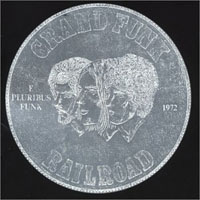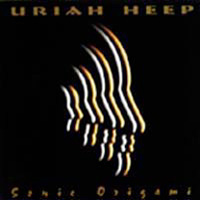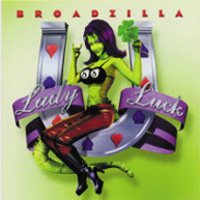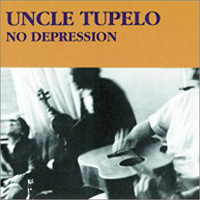 Grand Funk Railroad
Grand Funk Railroad
E Pluribus Funk (Capitol)
by Brian Varney
Though the albums contained in the first chunk of Capitol’s Grand Funk Railroad reissue series (On Time, “The Red Album,” Live Album, Closer to Home) are the most influential on the heavy music of today, these four, which comprise the second part of the series, will probably sell more copies since this era (1971-1973) is where Grand Funk hit their commercial peak. I worked in a record store for a couple of years, and many a time I was approached by a middle-aged guy with a beer gut, skullet, and faded REO Speedwagon shirt who would invariably ask “Got any copies of Survival?” These, after all, were the albums released at the height of the band’s popularity, thanks mostly to the colossal success of “We’re An American Band,” a song you can still hear several times a day just by turning on the radio. It’s quite a surprise, then, that these albums have only been available on CD as expensive Japanese imports until now (hence the above-mentioned guys on the hunt for used copies).
Perhaps it’s mere snobbery directed towards the arena-rock audience, but these records, though they sold far more than the band’s earlier efforts, are not well-regarded by rock geeks. Indeed, for a long time I avoided these albums, based solely on the word-of-mouth from folks who hung out in the same used record stores as I talking about ’70s rock records. “Get the early ones” was the mantra-like advice I’d hear. But eventually, curiosity, and the realization that folks who hang out and/or work in record stores are generally despicable people, got the best of me and I checked these albums out. And while it’s true that they lack the fuzzed-out red-wine-and-quaaludes retard grit and overall heaviness of On Time or “The Red Album,” I found myself enjoying these four albums a great deal, especially the first two.
Survival, the band’s fourth studio effort, marked the first time they were able to actually spend more than a couple of days on an album, which may account for the more polished sound. Combine the cleaner recording with the first flowerings of the band’s religious leanings (“I Can Feel Him in the Morning” probably stopped a few parties dead in its day), and it’s kinda easy to see why some would be put off by this album and those that followed.
However, what the band may’ve lost in raw power was made up in soul and groove. Joe Carducci wrote of Grand Funk “Their funk ain’t no bunk,” and Survival proves him right. Mark Farner has said that his favorite singers are Howard Tate and Aretha Franklin, and a listen to his vocals on, say, “All You’ve Got Is Money” lets you know that he’s not talking out his ass. Soulful vocals, excellent, sympathetic accompaniment, overall strong songwriting, and excellent covers of “Feelin’ Alright” and “Gimme Shelter”… it’s all here. Survival shows a band changing its sound but remaining at the top of its game.
Follow-up E Pluribus Funk, best known for the silver circular sleeve of its original vinyl release (it looks like a coin, hence the title), is actually better than Survival, and is my favorite of these four. Though sonically similar to its predecessor, E Pluribus Funk boasts even stronger songwriting, especially the opening one-two punch of the danceable “Footstompin’ Music” and the anthemic, fuzz-driven “People, Let’s Stop the War.” And though this second song is among the band’s finest moments, it does bring to mind an important point about this era of the band’s history. As the song title indicates, it was during this period that Farner began to fancy himself some sort of social critic. This may be laughable to some, especially as Farner’s lyrical abilities are lacking in many departments, but as I generally don’t give a toss about protest songs and social conscience in my music, I’d just as soon listen to Grand Funk play socially aware songs with bad lyrics than some boring folkie whose rare lyrical gifts are praised by the aforementioned record store hangers-on. Besides, when a band’s music is as exciting as Grand Funk’s is on E Pluribus Funk, I’m not especially concerned with the lyrics. Whether the song in question is socially-aware or empty-headed, good-time rockers like “Footstompin’ Music” or “Upsetter,” I’m mostly concerned with rockin’ out and gettin’ down, two things that are very easy to do when E Pluribus Funk is spinning.
In view of its title, it’s sort of ironic that Phoenix is where Grand Funk began to lose the way. There are some worthwhile moments, especially the syncopated sway of “Trying to Get Away,” but for the most part, the songwriting feels uninspired and the playing is lethargic. When you consider that this was the band’s first album without producer Terry Knight and the first not recorded in the familiar confines of Cleveland, some of the aimlessness may be excused. That doesn’t make the record’s dull moments any less dull, of course, but it does perhaps partially explain the rather sudden drop in quality.
Though the follow-up, We’re an American Band, thanks mainly to the massive (and deserved) success of its title track, is probably the band’s most popular album, it suffers in many of the same ways as Phoenix. Before we get to the bad, though, let’s talk about the good. The title track, which opens the album, is one of those songs I’ve probably heard a thousand times in my life, which can ruin even the finest of songs. “We’re an American Band,” though, is a song that, for reasons I cannot wholly explain, defies aging. It sounds as fresh, vibrant, huge, and as wholly brilliant right now as it did the first time I heard it. If I had to hear it every day for the rest of my life, I wouldn’t complain. It’s a perfect rock ‘n’ roll song in every way.
It would be unfair, then, to expect the rest of the album to live up to the glory that is its title track. This doesn’t dull any of the disappointment I felt at most of the rest of the songs, which range from not-bad (“Black Licorice”) to downright awful (piano-heavy ballad “Creepin'”). There are some good moments as well (particularly “Stop Lookin’ Back” and “Walk Like a Man”), but the scales tip heavily in favor of the not-so-good. As with much of Phoenix, very little here is unequivocally bad, but much of it just feels second-rate, as if the band was merely going through the motions, trying to recapture the glory of previous albums.
Still, it’s nice to have this chapter of the band’s history available at reasonable domestic prices, and considering the impeccable remastering treatment the albums receive and the generous allotment of bonus tracks (1-5 per album, most of them remixes and/or live tracks), there’s really no reason for those who are at least remotely curious about this great band not to check these reissues out.



